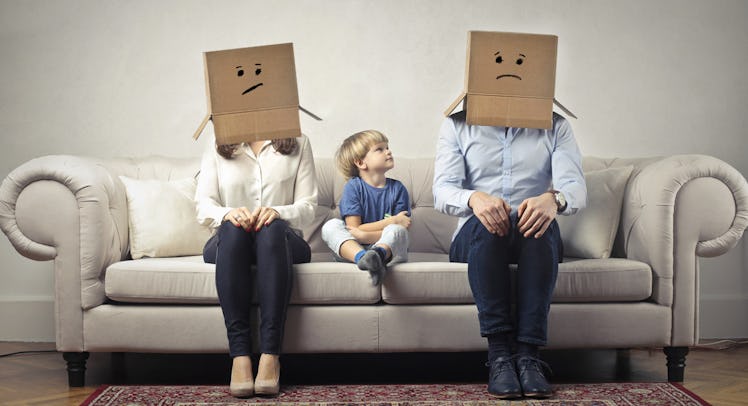The U.S. Is Entering a Public Health Crisis. Moms and Dads Are Creating It.
Parents have the most to lose from the rise of measles outbreaks, and yet they're the ones who are causing it. One physician thinks it's time they're held responsible.

Measles was least expected in the United States. The disease is generally concentrated in poor countries, low-resource settings, and areas of war and conflict. The measles vaccine is considered to be the best preventive measure, with the vast majority of vaccinated children never having the disease even with a single dose of vaccination. Since the advent of measles vaccine in the 1960s, the number of measles cases in the United States has been reduced by more than 95%. Rightfully so, vaccination is considered one of the greatest American public health achievements in the 21st century, with millions of disease cases being prevented each year. Since 2000, the measles vaccine has saved more than 20 million lives worldwide.
So, what happened? We did not become a war zone, or run low on resources or vaccines. We were not facing a crisis — we invited one. Now we are risking a public health calamity. A dangerous, but preventable cocktail of medical misinformation, conspiracy theories, fake news, political dialogue, anti-vaccination movements, and personal beliefs are responsible for this global wave of many infectious and vaccine-preventable diseases that have surged worldwide, with the United States being an unlikely victim. Given this dangerous cocktail and its rapid spread via social and mass media, it is not surprising that the World Health Organization lists vaccine hesitancy as one of the top 10 global health threats in 2019. Measles cases are expected to rise and continue to spread across the world, and the single major reason is gap in vaccine coverage, according to WHO.
This story was submitted by a Fatherly reader. Opinions expressed in the story do not necessarily reflect the opinions of Fatherly as a publication. The fact that we’re printing the story does, however, reflect a belief that it is an interesting and worthwhile read.
In the United States, parents have to take major responsibility for spread of and lack of prevention of measles as they are the major stakeholders and decision makers. In addition, many parents are propagating or believing in the dangerous cocktail mentioned above. To make the situation worse, mothers and fathers are using exemptions to not get children vaccinated. While all American states have laws on student vaccination, the majority of the states also allow exemptions based on personal belief, religious values, or medical grounds. Unscrupulous physicians are also adding fuel to the fire by helping with exemptions. This is despite the fact that powerful and responsible professional organizations such as the American Medical Association have always supported limited exemptions and strongly opposed immunization opt outs.
There is little time for action, and as vaccines have been shown to be effective, we need to close all these loopholes that prevent vaccination of American children. Currently, many states are trying to get new bills and legislation passed to deal with the measles crisis caused by lack of vaccination and exemptions. Pediatricians and medical societies are urging parents to shun all myths and get children vaccinated. In a few instances, children are trying to get vaccinations on their own despite parents’ disapproval and resistance.
Dr. Scott Gottlieb, the FDA Commissioner, is warning that the federal government may have to take action to ensure and enforce vaccination for children. Finally, there are criminal and civil negligence laws for parents related to children and firearms, delinquent youth, and failure to get medical care for children. Is it time to include vaccination within that umbrella of negligence and liability on the part of parents? Especially when they risk other children’s life by not vaccinating their own children? Maybe that’s our final resort to save the children of our nation from preventable disease and death.
Dr. Jagdish Khubchandani is a physician and professor of community health and Ball State University.
This article was originally published on